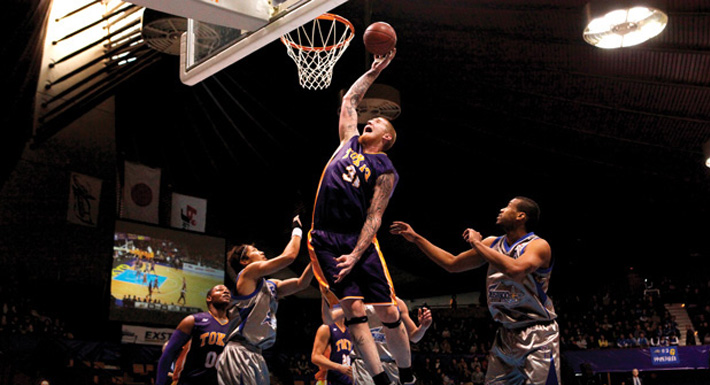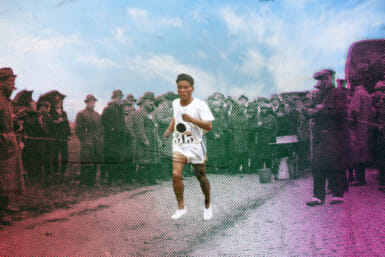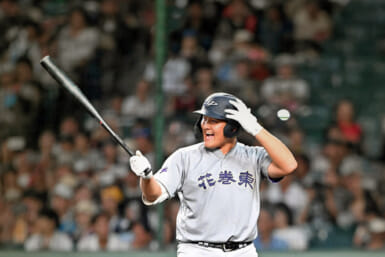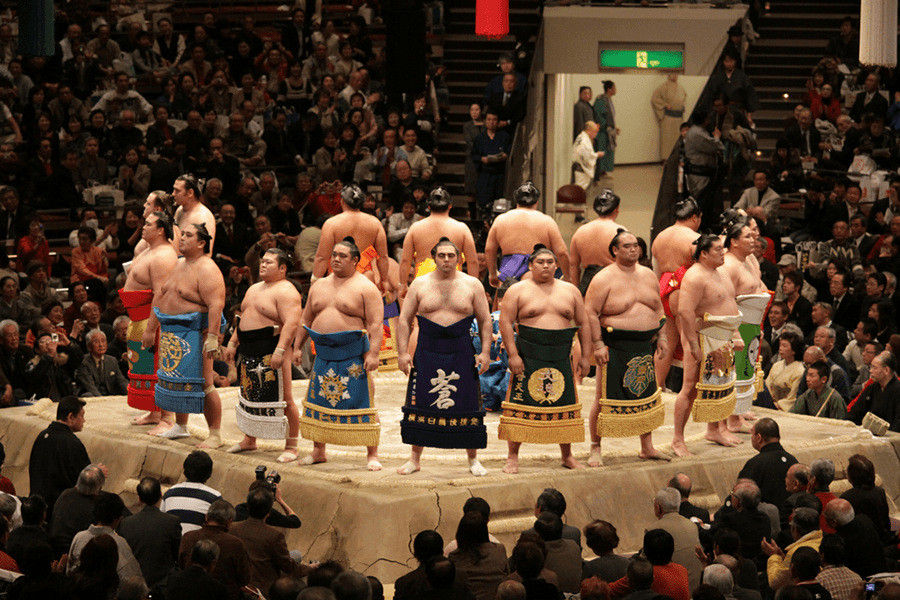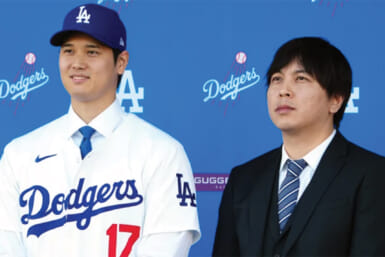Newly hired Tokyo Apache president Chris Hetherington and coach Bob Hill are looking to inject NBA-level play and excitement into Japan’s young bj-league. They’ll have to put some long, hard time in at the gym to succeed.
Launched in 2005, the bj-league, Japan’s professional basketball organization, is a relative new comer compared to leagues in the Philippines (1975) and Australia (1979). Eleven-year NFL professional Chris Hetherington, the recently hired president of the Tokyo Apache, is committed to grow the league by building his team with veteran coach Bob Hill and a host of talented players.
By Jason Williams
Opportunity knocked for Chris Hetherington at, appropriately enough, a Los Angeles Lakers game. As he watched NBA star Kobe Bryant work his magic against the Boston Celtics, Evolution Capital Management founder and CIO Michael Lerch was about to hand him the keys to the Tokyo Apache, the franchise that Bryant’s father, Joe, once coached. Sitting in his office in the Mori Tower high rise in Roppongi Hills months later, the memory still brings an smile to the face of the former NFL star-turned-financial-trader-turned Apache team president.
“We were at the playoff game,” Hetherington says, chuckling slightly. “He asked me if I wanted to run the team, and I stopped trading the next day. It all happened very fast, but it’s been a great ride.”
Hetherington didn’t have much time to settle into his new position before getting to work. After all, there was — and still is — much to be done. The Apache are struggling with sagging attendance and a record just above .500, and are tasked with creating a successful marketing plan in order to carve out some sort of notoriety in an city with no shortage of other pursuits.
The main challenge is trying to grow with the bj-league. Japan’s first professional basketball organization, the league began play in 2005, offering an alternative to the more corporate-driven Japan Basketball League in which all the teams are sponsored by and named after major companies such as Toyota and Panasonic. Since then, the number of teams has swelled from six teams in its inaugural year to 13 this season. The players are a hodgepodge of Japanese athletes, ex-NBA players and former US college standouts.
Gaining a foothold in the Japanese sports landscape has been tough for the league, which lags far behind baseball, soccer and sumo among other sports. Media coverage is scarce in major outlets and finding games on terrestrial television is a chore. The sport is popular at the grassroots level — the annual high school tournaments draw respectable crowds — but has failed to resonate with fans on the professional level.
“It’s been a humbling experience for me,” Hetherington says. “Because I played on such a big stage, for me to go around and ask people if they’ve ever heard of the Tokyo Apache, which is a professional basketball team, and for them to say no, is very humbling.”
The hope for many is that one day a Japanese player can make the leap to the NBA, which would help publicize the game domestically. That model has worked in baseball and soccer, both wildly popular in Japan.
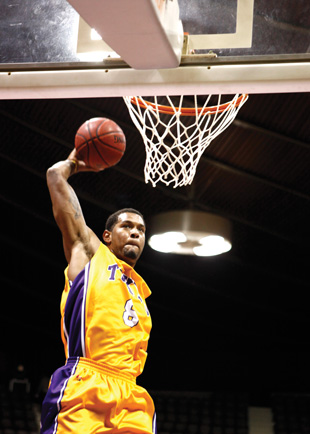
The Apache made a splash in the offseason by signing big man Jeremy Tyler, who NBA scouts are keeping tabs on
One Japanese player, Yuta Tabuse, has made already done so, but his time there was too brief — four regular-season games for the Phoenix Suns in 2004 — to have a lasting impact.
The good news is that the bj-league is structured to cultivate competitive domestic talent: Four foreigners (but no more than three non-Asians) are allowed on the court at the same time, compared to two in the JBL, which some hope will inspire gradual growth through competition.
“Compared to other countries around the world, the level of basketball in Japan is not as high,” says Apache point guard Cohey Aoki (pictured on the cover). “But compared to when the league was established, it’s grown, and the level has gone up. The quality of the league is definitely increasing, and the quality of the foreign players is increasing.”
Those foreign players are facing a better competitive environment when they enter the league, even if it is still far below the more established European leagues, which in turn trail the NBA.
“It’s amazing to watch. They (the Japanese players) work harder than any group I’ve ever been around,” says Apache big man and former NBA first-round draft pick Robert Swift. “They’re fundamentally better than Americans. There’s no other way to say it. Their fundamentals are what Americans try to get to. Their one disadvantage is the athleticism Americans have.”
Hetherington recognizes the challenges and sees them as obstacles to be overcome. “I have huge plans,” he says. “I’m a very competitive guy. I didn’t pack up my house in California to come here and not do well. I think the most rewarding thing for me is to build a huge fan base and a product that our city is proud of.”
Failure is one thing the Apache president hasn’t dealt with much. Hetherington was a three sport star at the high school level, excelling in baseball, football and hockey at Avon Old Farms, a prestigious all-male boarding school in Connecticut that counts numerous professional athletes among its alumni.
He continued his studies at Yale, where he played baseball and starred on the football field for the Bulldogs. After graduating in 1996, he signed a contract with the NFL’s Cincinnati Bengals as an undrafted free-agent.
That was the beginning of an 11-year career as a fullback for the Indianapolis Colts, Carolina Panthers, St. Louis Rams, Oakland Raiders and San Francisco 49ers. Mindful of the fact that there was life after football, Hetherington soon began to plot a new course.
“By the end of my career I was looking to do other things,” he says. “I was really interested in business and interested in finance.”
With football behind him, he took executive MBA classes at Harvard before settling into the world of financial trading. He soon met Evolution Capital’s Lerch, a Princeton grad, and went to work for him in 2008, falling right into lockstep with Lerch’s group, “a bunch of ex-Ivy League athletes trading money for a living.”
The capital management group had been looking into a sporting venture for some time when the opportunity to take over the Tokyo Apache rolled around. Lerch turned to Hetherington to help turn the investment into a success.
“I really was always interested in the management side of sports,” he says. “I played football for 27 years, and I kind of wanted to explore other things and use my brain in other ways. This was a perfect opportunity to get back, collect my thoughts, realize what I had experienced for such a long time, and try to transfer that knowledge into something that was special.”
These days the former fullback has traded his shoulder pads for suits and his cleats for business shoes, but he still has the muscular frame of a football player and wears his hair close-shaven. His eyes are intense, and there is an air of assuredness and confidence as he speaks about his plans for the Apache.
“I think basketball is a very popular sport,” Hetherington says. “I think a lot of kids play basketball. We just need to do our part to spread the word, give these kids some role models to look up to and provide a professional franchise they can feel good about.”
To help on the court, the team reached out through a mutual contact and brought in Bob Hill, who had won 257 games as a head coach in the NBA (most recently helming the Seattle Supersonics), to coach the team and help promote the league.
“I’ve embraced that,” Hill says. “Anything I can do to help basketball in Japan, I’m willing to do.”
The Apache have also bolstered their ranks on the floor, signing US high school phenom Jeremy Tyler and guard Byron Eaton in the hopes of keeping up with the league’s favorite for the title, the Hamamatsu Higashimikawa Phoenix.
Famed former baseball manager Bobby Valentine, who achieved the heights the Apache are shooting for with the Chiba Lotte Marines, calls Hetherington a “Yale guy with a good heart. (He) needs some help to understand Japan.”
The former football star says he is eager to learn and is counting on success to come with that understanding.
“Obviously, we have so much work to do but we’re ready for the challenge,” Hetherington says. “We’re in this for the long term. That’s what we’re really trying to express to the fans — that we’re here for the long term and here to make them proud.” — (W)
CONTINUED 1 | 2 | NEXT |
External Links:
Bj-league
Tokyo Apache

